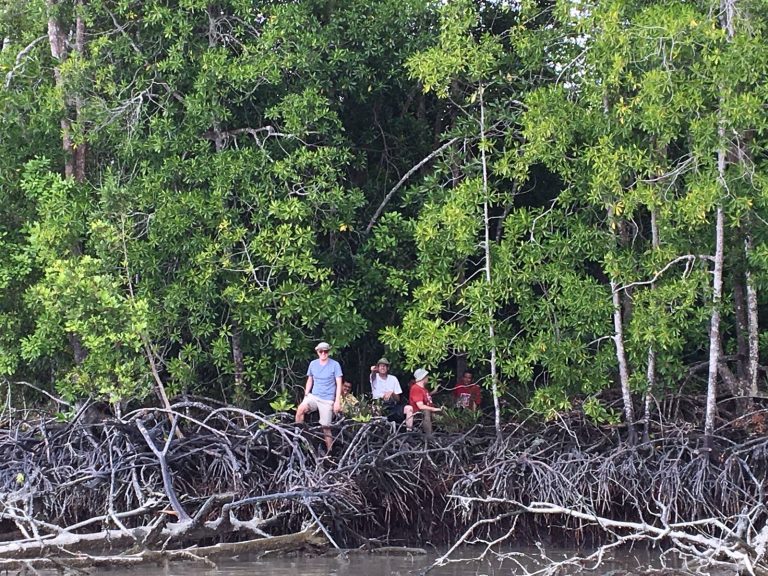The Systems Ecology and Resource Management Research Unit (c/o Prof. Farid Dahdouh-Guebas), seeks to understand and to predict how and why spatio-temporal dynamics in vegetation and landscape occur.
It adopts a retrospective approach using relevant methods from different disciplines (tropical botany, very high resolution sequential remote sensing and ground truth, socio-economic survey research, historic archive research,…), an integrative analysis (using geographical information systems, multivariate and multicriteria analyses,…) in order to generate outputs relevant for fundamental understanding of ecosystem functioning (health status, resilience) and for its management (conservation, restoration). Within this framework we also emphasize biodiversity changes, climate change, ecological and ethological plant-animal interactions and man-ecosystem interactions. Mangrove forests form an important model for our research, but close links exist with adjacent ecosystems such as tropical rainforests or coral reefs. The research is done on different spatial scales from the case-study level in different countries to the macroecological level (global).
The research is often done in collaboration with the Ecology & Biodiversity Research Unit (formerly Plant Biology and Nature Management) of the Vrije Universiteit Brussel (Prof. Nico Koedam).
Model ecosystem and geographical sites :
Mangrove forests form the primary model ecosystem the unit studies, and studies have been carried out in the following countries :

Mexico
Honduras
Jamaica
Martinique
Guadeloupe
Colombia
Ecuador
Brazil
Mauritania
Senegal
The Gambia
Ghana
Togo
Benin
Nigeria
Cameroon
RDC
Kenya
Tanzania
South Africa
Madagascar
India
Sri Lanka
Bangladesh
Thailand
Malaysia
Singapore
Vietnam
China
Philippines